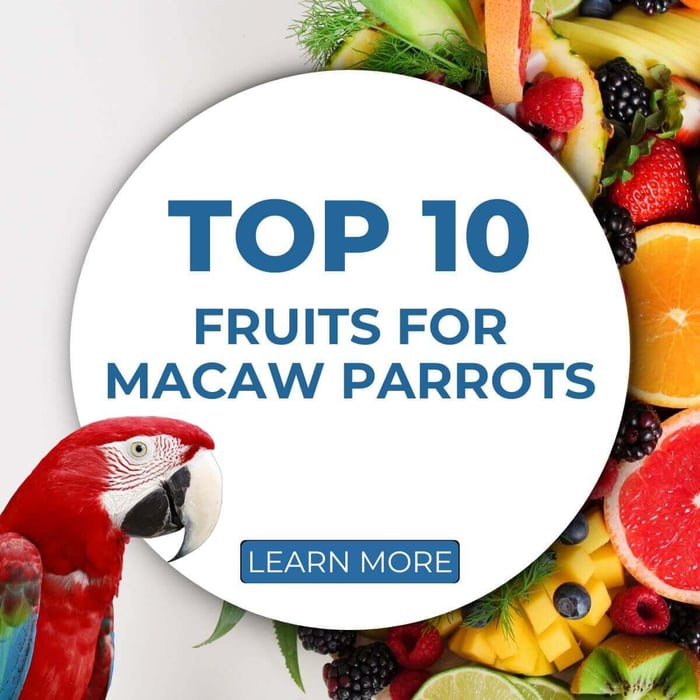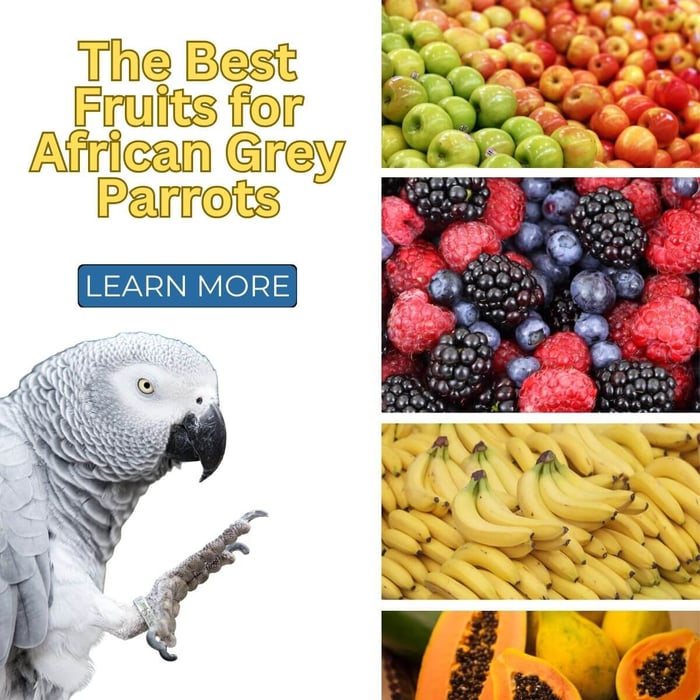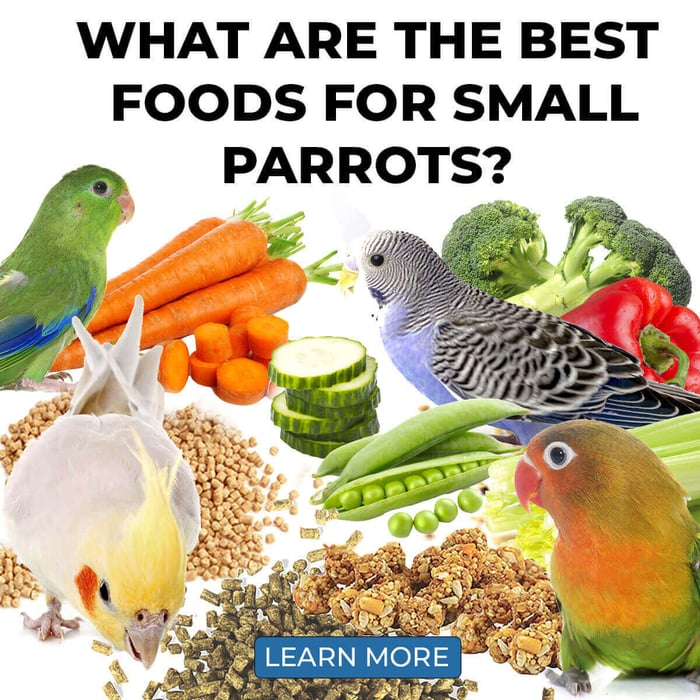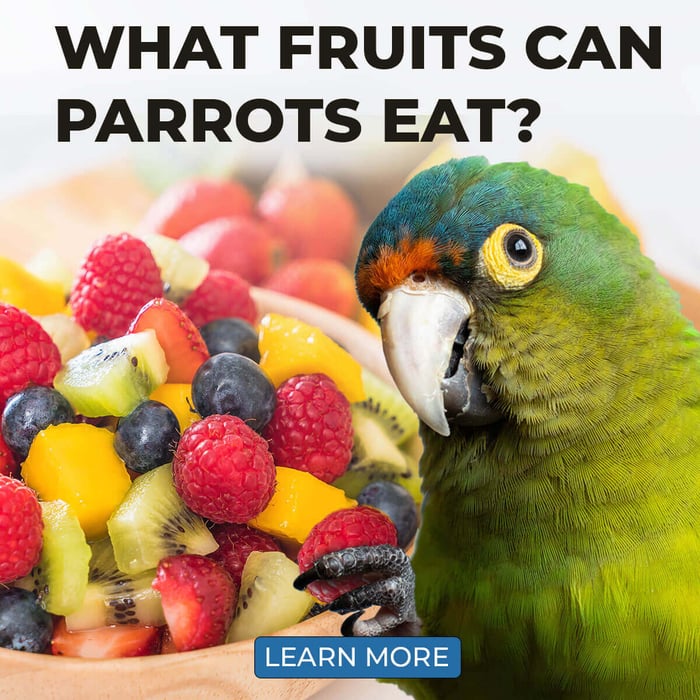Fruits for Parakeets: A Colourful Guide to Healthy Treats
Parakeets are a diverse group of small to medium-sized parrots known for their playful personalities and vibrant plumage. This group includes popular pet species such as Budgerigars (budgies), Indian Ringnecks, Quaker Parrots (Monk Parakeets), Alexandrines, and Bourke's Parakeets, among others. While their sizes and temperaments may vary, they all benefit from a diet that mirrors the natural variety found in the wild. In their natural habitats, parakeets feed on a mix of seeds, fruits, vegetables, and plant material. As pet companions, offering this range is essential to support their overall health. While a balanced diet should centre around high-quality pellets and seed mixes, incorporating fruits for parakeets adds important nutrients and enrichment.
In this blog post, we'll explore the best fruits for parakeets of all kinds, offer safe feeding tips, and highlight which fruits to avoid. Whether you have a budgie or a larger parakeet like an Indian Ringneck, this guide will help you choose the right fruits for your feathered friend.
Why Offer Fruits to Parakeets?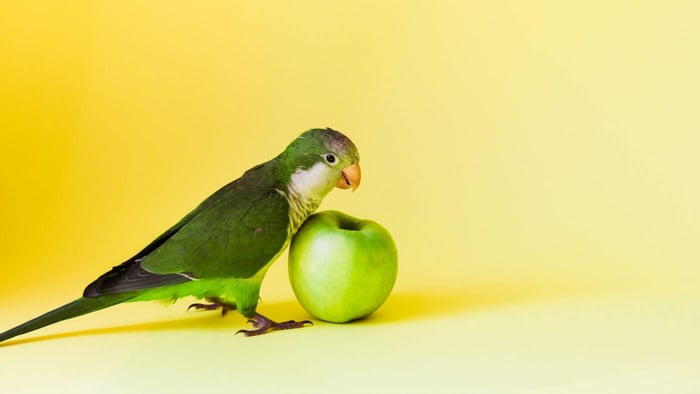
Fruits are a natural source of essential nutrients such as vitamin C, potassium, antioxidants, and dietary fibre. Adding fruit to your parakeet's diet not only supports immune function and digestive health but also adds sensory enrichment and encourages natural foraging behaviour.
However, fruits should always be served as a treat, not a staple. Due to their natural sugar content, overfeeding fruit can lead to obesity and other health problems. A good general guideline is to keep fruit to about 10–15% of your bird's total diet.
Top 10 Best Fruits for Parakeets
Here's a list of safe and healthy fruits that can be offered a few times a week in small portions to parakeets of all sizes:
1. Apples (seedless)
Crisp and refreshing, apples are a favourite among many birds. They're a great source of fibre and vitamin C. Always remove the seeds, as they contain cyanide and are toxic to birds.
2. Berries (blueberries, strawberries, raspberries, blackberries)
Packed with antioxidants and low in sugar, berries are ideal for both small parakeets like budgies and larger ones like Quakers. Their size and texture make them easy to handle and fun to eat.
3. Grapes (seedless)
Sweet and juicy, grapes are often a hit with parakeets. Offer seedless varieties cut in half, especially for smaller species due to their sugar content, limit frequency.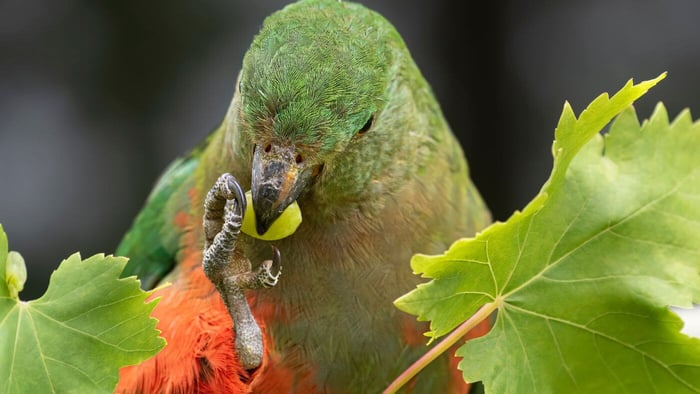
4. Pears (seedless)
Pears offer a gentle fibre boost and are soft enough for most parakeets to enjoy. As always, remove the seeds and offer them in small slices or chunks.
5. Banana
Bananas are easy to digest and high in potassium. They're suitable for all parakeet types, but because they're starchy, it's best to serve them occasionally in thin slices.
6. Melons (cantaloupe, honeydew, watermelon)
Hydrating and refreshing, melons are excellent for parakeets, especially in warmer months. Remove seeds and rind before serving.
7. Kiwi
Kiwi is tangy and rich in vitamin C and fibre. Peel the fuzzy skin and cut it into bite-sized pieces for your bird to enjoy.
8. Mango
A tropical fruit high in vitamin A and beta-carotene. Peel and remove the stone before offering small, soft pieces. Larger parakeets may prefer chunkier pieces they can hold on their feet.
9. Papaya
Soft, colourful, and full of digestive enzymes, papaya is a favourite among many parrots and parakeets. It's also rich in vitamin C and fibre.
10. Pomegranate
Although a little messy, pomegranate is fun to eat and full of antioxidants. Let your parakeet peck at the seeds, but offer them in moderation due to their acidity.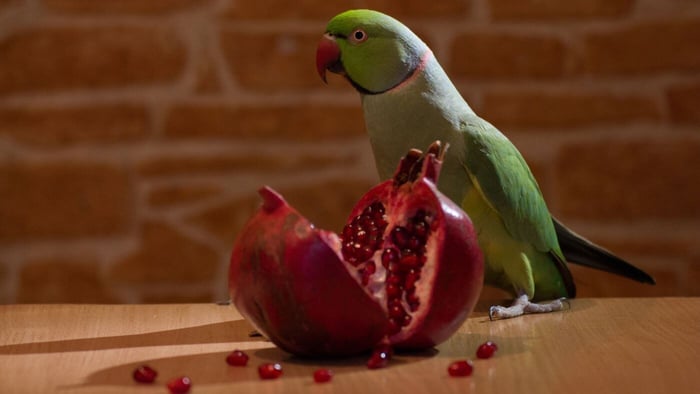
Tips for Serving Fruits to Parakeets
Keep these guidelines in mind to make fruit feeding safe and enjoyable:
- Wash thoroughly: Always rinse fruit, even if it's labelled organic.
- Remove seeds and pits: Unless you're certain they're safe (like in berries), remove seeds and stones from all fruits.
- Chop appropriately: Cut fruit into small, manageable pieces. For larger parakeets, chunks they can hold may be preferred.
- Serve fresh: Offer at room temperature and remove uneaten portions after a few hours.
- Use variety: Rotate different fruits to maintain interest and provide a range of nutrients.
Enrichment idea: Hide fruit in foraging toys or under leaves to encourage natural exploration and stimulation.
Fruits to Avoid for Parakeets
Some fruits are harmful to parakeets and should be avoided:
- Avocado: Contains persin, a toxin dangerous to birds.
- Fruit seeds and pits: Apple, cherry, peach, apricot, and plum pits contain cyanide compounds.
- Citrus fruits (in excess): Oranges and lemons can be acidic and may upset your bird's digestion if overfed.
Do All Parakeets Like Fruit?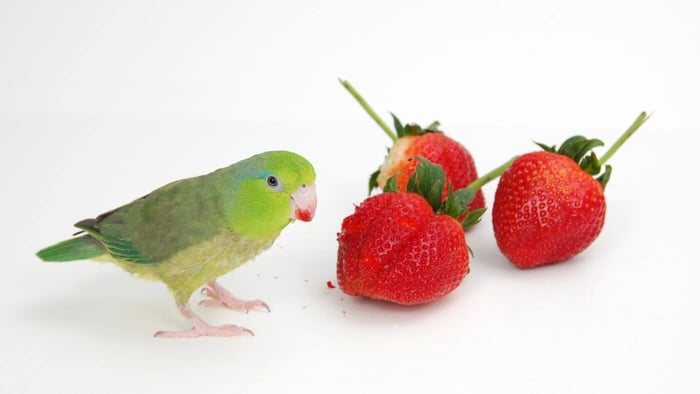
Not every parakeet takes to fruit straight away. Smaller species like budgies may be more hesitant at first, while bolder species like Quakers or Ringnecks might dive right in. Signs your parakeet enjoys fruit include:
- Eager pecking and chirping
- Holding food with their feet
- Coming to the food bowl as soon as fruit is offered
If your parakeet is reluctant, try offering the fruit in different forms: grated, mashed, or mixed with other foods.
Balancing a Parakeet's Diet
Whether you have a small budgie or a larger Indian Ringneck, the foundation of a healthy diet remains consistent:
- Pellets: These provide complete, balanced nutrition and should make up the bulk of their diet.
- Fresh vegetables: Dark leafy greens, bell peppers, and carrots are excellent.
- Seeds: A quality seed mix can be offered in moderation.
- Fresh water: Clean and replenish daily.
- Fruits: A colourful, tasty supplement offered a few times a week.
Final Thoughts
Fruits for parakeets, whether small budgies or larger species, can be a fantastic way to boost their nutrition and enrich their daily routine. From vitamin-packed berries to juicy melon slices, there's a wide range of safe, healthy options to explore. Just remember to serve fruit in moderation and always prioritise a balanced diet.
At Parrot Essentials, we offer a wide range of healthy treats, foraging toys, and feeding accessories to help all parakeet owners support their birds' well-being. Visit our blog for more expert tips on parrot nutrition and care.
FAQs
How often should I give fruit to my parakeet?
Fruit should make up no more than 10–15% of your parakeet's diet. Offering it a few times a week in small portions is ideal.
Can all parakeet species eat the same fruits?
Yes, most safe fruits can be enjoyed by all parakeet species, from budgies to Indian Ringnecks. Just adjust portion sizes based on your bird's size.
Which fruits are dangerous for parakeets?
Avoid avocado, apple seeds, cherry pits, and other stone fruit pits. Also, limit citrus fruits like oranges due to their acidity.
My parakeet doesn’t like fruit, what should I do?
Try offering it in different ways: grated, mashed, or mixed with their regular food. Some parakeets need time to adjust to new textures and tastes.
Should I peel fruits before feeding them to my parakeet?
Yes, especially fruits like kiwi and mango. Even for fruits with edible skin, always wash thoroughly to remove pesticides and dirt.

